In Malaysia, new political parties signal their strengths and what they can bring to the table
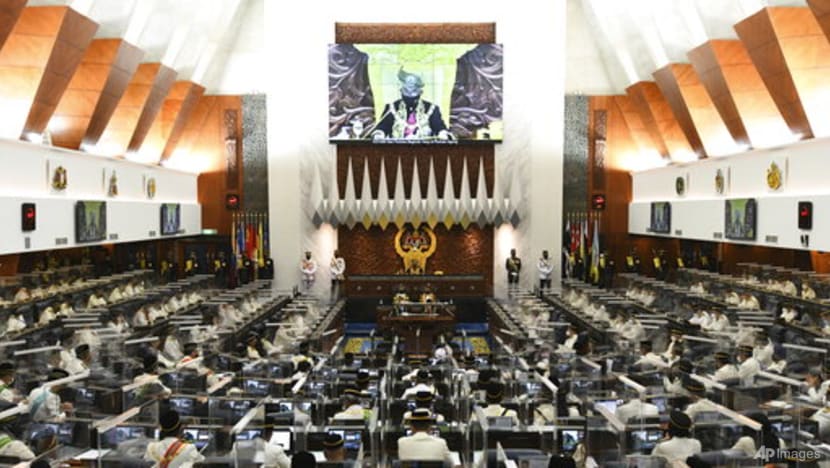
KUALA LUMPUR: Malaysia has seen a number of new political parties making an appearance in the second half of 2021.
The new parties add to an already fractured Malaysian political landscape, which has been in tension since the fall of the Pakatan Harapan government in March 2020 and the subsequent takeover, first by the Perikatan Nasional government and then the United Malays National Organisation-led (UMNO) administration.
Malaysian United Democratic Alliance (MUDA) and Parti Kuasa Rakyat have successfully registered with the Registrar of Societies last year, while the Sarawak Workers’ Party rebranded itself as a national multiracial party known as Parti Bangsa Malaysia (PBM).
Then there is also a group called the Gerak Independent, which is backing personalities to stand in the next general election as independent candidates.
With a looming state election in Johor and talk of an early general election this year, what are the aims of these new parties and how do they see themselves offering something new for the Malaysian voters?
CNA speaks to the parties’ representatives to get their perspectives.
YOUTH-BASED MUDA FINALLY REGISTERED
MUDA, led by Muar MP Syed Saddiq Syed Abdul Rahman, initially faced hurdles in getting registered as a political party.
The Registrar of Societies (ROS) had rejected their application in early 2021.
An appeal to the Home Affairs Minister was left languishing for several months before a last minute rejection on Aug 12, 2021, just as MUDA’s suit to compel the ministry to issue a decision was about to be heard in court.
Following a new judicial review application at the end of August 2021, the High Court ordered the Home Affairs Ministry to allow the registration to proceed within 14 days on Dec 14.
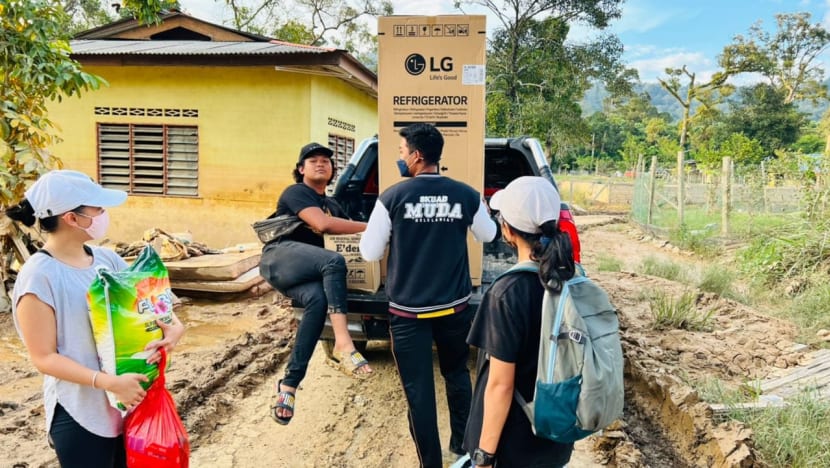
The party saw a spike in membership registrations after its official registration on Dec 23, its information chief Zaidel Baharuddin said.
This led to improvements in field organisation, election preparation and fundraising. MUDA’s relief efforts during the recent floods across the country also helped drive up membership numbers, he added.
“The registration marks the arrival of MUDA as a political party with its own base and grassroots,” he said.
Although the word “muda” means young in Malay, Mr Zaidel said this did not mean that the party focused on youth-oriented messaging to the exclusion of other population segments.
“Rather, we focus more on championing key issues that cut across age, from corruption to institutional reforms, which is why we are beginning to see an increasing number of members whose ages are beyond what one would consider ‘youthful’,” he observed.
The party information chief said in the short-term, MUDA aspires to build a political movement influential enough to tip the balance in key seats and states.
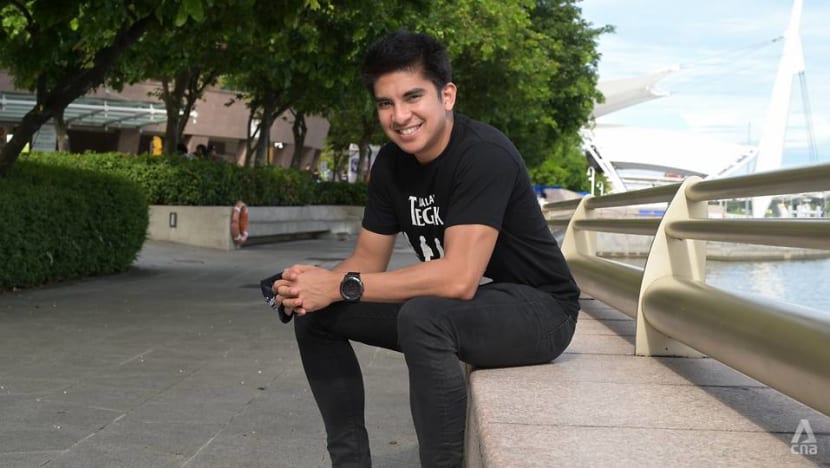
For the longer term, the goal is to be an influential party with electoral gains that will allow it to enact reforms and institutional changes, he said.
“To achieve these short-term aspirations, we have to organise ourselves in every state and build a competent, effective and inspired election machinery that can galvanise our base to turn up and vote,” he added.
One way MUDA stands out, he added, is that it was founded amid the pandemic and movement controls and so it relies heavily on digitalisation to organise.
“The good thing is that this approach is quite economical, highly effective and efficient in managing a large organisation, but we do not discount the effectiveness of physical engagement,” Mr Zaidel said.
The one-month-old party has already courted some controversy as it was accused of signing up people as members without their consent.
However, MUDA denied falsely signing up non-members, stating that these were “hiccups” due to possible abuse of the party’s simple registration process.
Related:
GOVERNMENT-FRIENDLY, MULTIRACIAL PBM
PBM was originally founded as the Sarawak Workers’ Party (SWP) in 2012, before it was renamed and unveiled as PBM in November last year.
The party’s leadership includes former MPs and state legislators from Pakatan Harapan, with Julau MP and former Sarawak Parti Keadilan Rakyat (PKR) chairman Larry Sng Wei Shen as president and incumbent Selangor state legislator Haniza Talha as deputy.
“At last count, membership was close to 100,000, with roughly 40,000 from the original SWP and over 50,000 from new registrations, including the participation of Penggerak Komuniti Negara,” said Mdm Haniza.
Penggerak Komuniti Negara is a non-governmental organisation started by Plantation Industries and Commodities Minister and Parti Pribumi Bersatu Malaysia MP Zuraida Kamaruddin.
Currently, Mdm Haniza added, there were already 157 party divisions all over the country, and some have already begun meeting.
For a new party such as PBM, the immediate challenge has been to assist the public with recovering from the recent December 2021 floods, while also getting its name out on the ground and begin prepping for the next general election, the deputy president said.
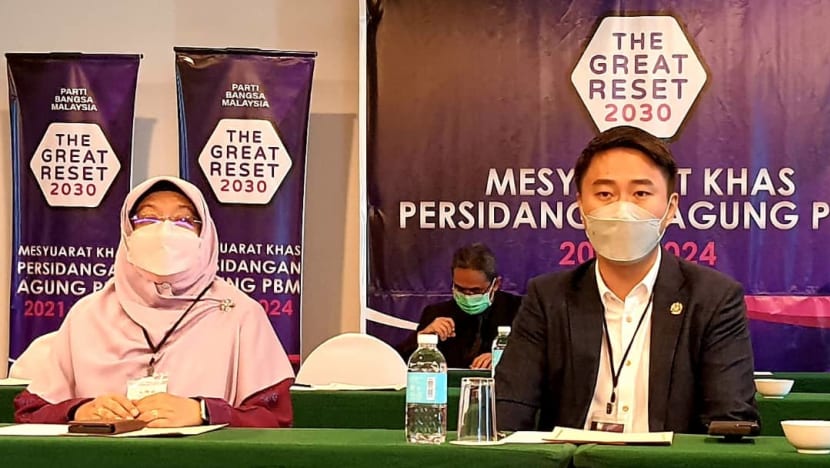
“Of course the short-term goal is to prepare for the next general election, so that we are ready whenever it is announced,” Mdm Haniza said.
The party has also engaged in state-level politics by supporting the ruling Gabungan Parti Sarawak in the recent Sarawak state election.
“We still think it’s not the right time to have state elections, with COVID-19 going around and the recent floods, but this can also be a way to let people know that we are going to be around, and for quite some time,” she said.
At this point however, the party was still deliberating whether to have candidates standing in the state election or merely providing support for the current government parties, Mdm Haniza said.
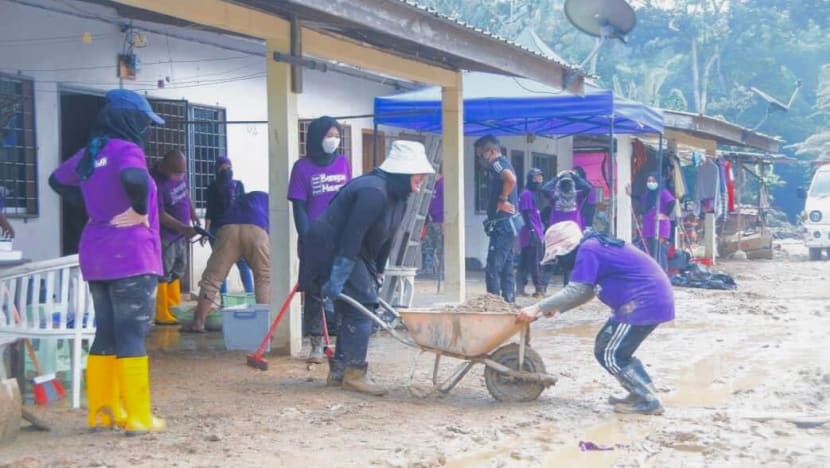
When asked how PBM would aim to distinguish itself from other competitors, Mdm Haniza explained that the party championed several themes such as multiracialism, women’s empowerment and youth leadership.
“And we are looking to reset the economy, our education and the use of science and technology in the development of the country. All these in one package, which no other party has,” she added.
Being a new party which is government-friendly brought a lot of positives, such as involvement in decision making and implementing the decided policies, Mdm Haniza said.
“As a new party, it is also an advantage - people will want to know what we are promoting, what are the salient points we are going to carry forward,” she added.
POWER TO THE PEOPLE
Newly launched on Oct 10 last year, Parti Kuasa Rakyat has left it to the ruling Barisan Nasional (BN) coalition led by UMNO to decide whether to accept it as a component party.
Parti Kuasa Rakyat is literally the people's power party. Its founder and president, Kamarazaman Yaakob, is the older brother of Ismail Sabri Yaakob, Malaysia’s current prime minister.
A former student activist, Mr Kamarazaman said the party’s ideology was based on marhaenism. The Malay word “marhaen” means ordinary people.
“That means we fight for the people, and for long-term goals such as free education. We fight homelessness and increase productivity for groups such those working in agriculture, the farmers and fishermen.”
In addition, he added, other long-term aspects the party is fighting for included wages for the working class, which needed to be increased to match the rising living costs in Malaysia.
Currently, the party is in the process of strengthening its infrastructure. And to do so, it has signed a memorandum of understanding (MOU) with the Minority Rights Action Party (MIRA), a party which was founded in 2018.
“We are awaiting approval of the name change from MIRA to Parti Kuasa Rakyat from the ROS,” Mr Kamarazaman said.
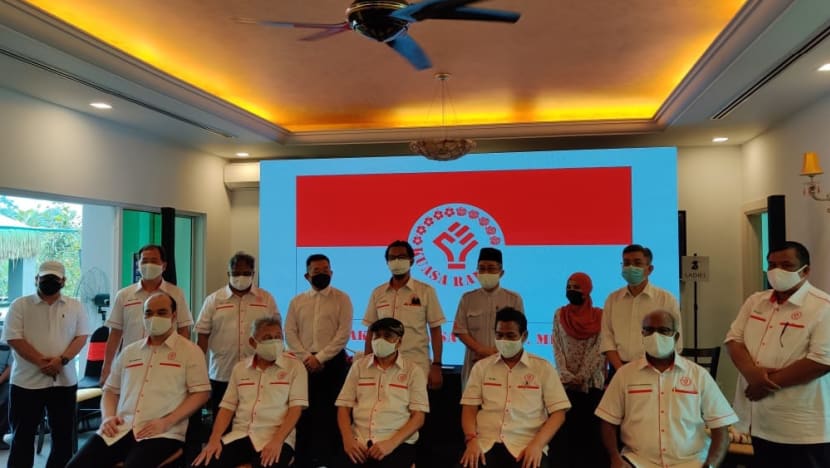
While waiting, the party is registering new members. As a BN-friendly party, it would assist the coalition in Johor.
“Short-term wise, the immediate goals are to beef up our party infrastructure and machinery, and apply to be a component party of BN,” he said.
Previously, Mr Kamarazaman had said that Parti Kuasa Rakyat, as a multiracial party, could fill an existing void in the BN coalition, which is primarily composed and led by race-based parties such as UMNO, Malaysian Chinese Association and Malaysian Indian Congress.
INDEPENDENT INITIATIVE
Traditionally, candidates backed by established parties, whether government or opposition, are the ones obtaining the largest vote share. Independent candidates usually do not fare well in the elections.
An initiative known as the Gerak Independent (GI, translated as the independent movement) decided to challenge the odds. It announced it would support candidates to stand in the next general election.
Members of Malaysian civil society such as activist and lawyer Siti Zabedah Kasim (popularly known as Siti Kasim), former Benut MP Mohamed Tawfik Ismail and retired civil servant and activist KJ John already announced as candidates.
Mdm Siti said an issue with Malaysian politics is that party loyalty and the benefits it entailed, including both party and government positions, ended up with elected representatives being beholden to the party rather than doing what is truly necessary for the country and its citizens.
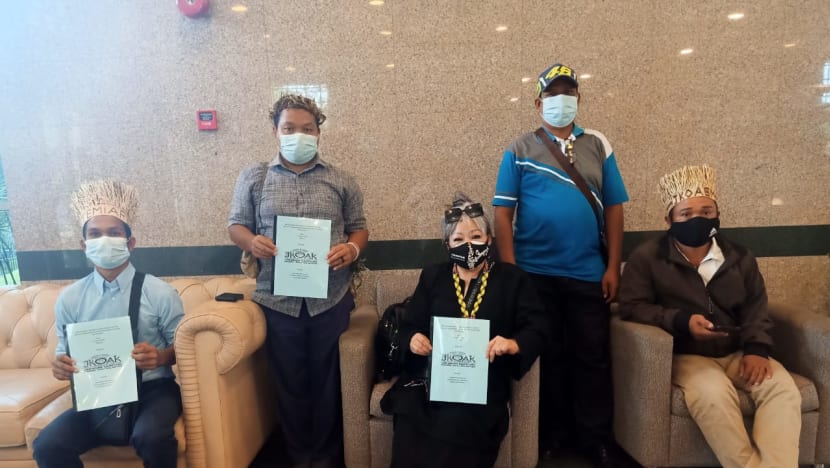
“GI is a movement that sees ourselves as the real intellectual and progressive change the country needs to break the hegemony of political party thinking and mindsets,” she said.
Rather than using political parties as middlemen, she said GI aimed to bring in established private sector professionals and accomplished civil servants who had proven capabilities and achievement.
This was another reason that GI had announced its independent candidates way ahead of time, Mdm Siti said.
“Traditionally, independent candidates have a short campaign period of typically two weeks to deliver their message. GI candidates are announced now to allow sufficient time for messaging and awareness of the candidacies by our target constituents,” she explained.
All six announced so far appear to be campaigning on five common pillars, such as correct treatment for Sabah and Sarawak under the 1963 Malaysia Agreement, ending divisive politics and establishing a needs-based affirmative action and poverty eradication programme.
“Our short-term aspirations is to bring a few good men and women into the parliament to show that politics can be done differently than it is now,” Mdm Siti explained.
The long-term aim is to spark a change in voter mentality to favour independents rather than political parties, she added.
POPULACE FED UP WITH MAINSTREAM ANTICS: ANALYST
Political scientist Ahmad Fauzi Abdul Hamid, who lectures at Universiti Sains Malaysia (USM), said it had become apparent since the pandemic that the Malaysian populace was fed up with the antics of mainstream politicians from the major coalitions.
Pointing to the end-2021 floods in Selangor and Pahang, the political analyst noted Malaysians’ discontent and open questioning of politicians for their lack of urgency in dealing with the victims’ circumstances.
He said that while some politicians had tried to capitalise on this prevailing sense of disappointment with major political parties, ultimately a new party’s survival would depend on its election successes.
“In order to succeed, the new party founders must display unquestionable character, which might act as magnets for support,” Prof Ahmad Fauzi said.
On MUDA, he said the party had already made an impact among younger Malaysians with its efforts in helping flood victims. The social media savvy party has also produced short explanatory videos on current events.
“They (MUDA) can rock the political boat, provided they manage to win a few seats at parliamentary or state level so as to have their voices heard at the highest stages of political life,” he said.
If youth support was not enough for MUDA to win, the party would have to carefully weigh the pros and cons of working within a larger, structured opposition grouping such as PH, he added.
However, for other parties such as Parti Kuasa Rakyat, Prof Ahmad Fauzi pointed out that they lacked presence on the ground during the flood crisis.
“This is a pro-Ismail Sabri party masquerading as a people’s party. Where were they during the flood relief efforts?” he noted.
For PBM, however, Prof Ahmad Fauzi observed that its leaders, especially the non-Malays, are facing a dilemma as they had won their seats in the last election on a PH ticket and an anti-BN platform.
“They will lose all credibility if they join BN, which lacks a reformist ethos, as whatever positive changes we’ve seen in the current BN-PN administration were foisted upon them by political circumstances after BN’s shock defeat in 2018,” he said.



















